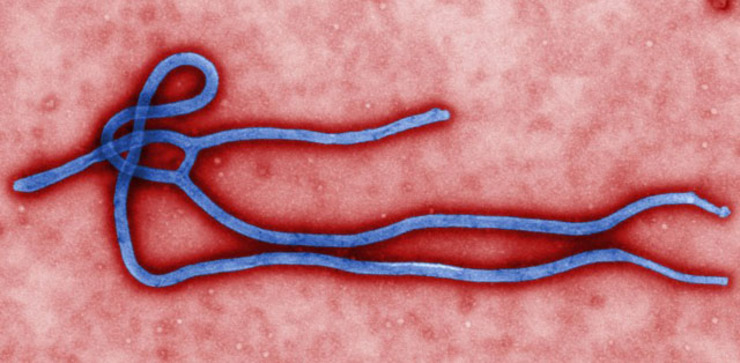SUMMARY
This is AI generated summarization, which may have errors. For context, always refer to the full article.


MANILA, Philippines (UPDATED) – The Philippines may not be sending health workers to West African countries hit by an Ebola outbreak, but the government will soon begin a weekly training to prepare the country’s frontliners against the virus.
In a statement Friday, October 17, the Department of Health (DOH) and the World Health Organization (WHO) Philippines announced its plan to conduct specialized training programs for health workers from both public and private hospitals.
The weekly training, which will begin October 28, will help prepare Filipino health workers on how to detect and treat cases of Ebola, and how to prevent a possible spread in the country.
The Ebola virus, which can be transmitted through bodily fluids, causes severe fever, muscle pain, weakness, vomiting, and diarrhea. In some cases, it also causes organ failure and unstoppable bleeding. It can kill victims in just days.

FULL COVERAGE: EBOLA CRISIS
Malacañang on Saturday, October 18, welcomed the plan. “It shows that we’re being proactive in our preparations. Hopefully, the virus would not reach our shores,” said Deputy Presidential Spokesperson Abigail Valte in an interview with state-run Radyo ng Bayan.
As of Friday, October 17, 4,555 people had died out of a total of 9,216 cases in the outbreak, according to the WHO. It earlier warned the infection rate could reach 10,000 a week by early December. (READ: World steps up Ebola action as fear mounts)
“We want to primarily increase the capacity of our health workers nationwide in responding to [Ebola], like what we did when SARS and H1N1 threatened the country a few years ago,” Health Secretary Enrique Ona said in the statement.
Expert trainers in infectious diseases and Ebola will train infection control specialists, doctors, nurses, and medical technologists from all DOH-referral hospitals, private hospitals, and local government hospitals.
A group of Filipino doctors earlier urged the government to first strengthen the Philippines’ defense against Ebola before providing “human resources” as response to global calls. (READ: Ona: Philippines ready for Ebola)
The health department has already identified one referral center for every region in the country, while the Research Institute for Tropical Medicine (RITM) was designated as the National Referral Center for Emerging and Re-emerging Infectious Diseases.
Preparations begin as the government is set to raise alert level 3 – voluntary repatriation – over Ebola-affected West African countries “effective mid-November 2014.” Filipino United Nations peacekeepers from Liberia will also come home on November 10.
WHO training standards
The training, which will explain why Ebola has spread in West Africa, will cover the following:
- Ebola transmission and epidemiology
- Geographical and cultural setting in West Africa
- Practical skills such as personal protection, security, and safety
- Clinical guidelines for the treatment of cases
- Principles of outbreak control, response, and logistics support
The health department said the training, which will be based on standard WHO training on Ebola, will increase the the capacity of the Philippines’ health system to prevent Ebola, and to respond should a case reach the country.
“The health workers trained will be essential for Philippine efforts to protect the country from the potential threat of the disease,” WHO Representative for the Philippines Julie Hall said in the statement.
Examinations will be given to the health workers before and after training. (READ: UN working on Ebola safety as PH mulls deployment)
“With all these preparations and with the assistance of international partners like the WHO, we are optimistic that we will be able to respond appropriately to Ebola if it enters the country,” Ona added. – Rappler.com
Add a comment
How does this make you feel?
There are no comments yet. Add your comment to start the conversation.